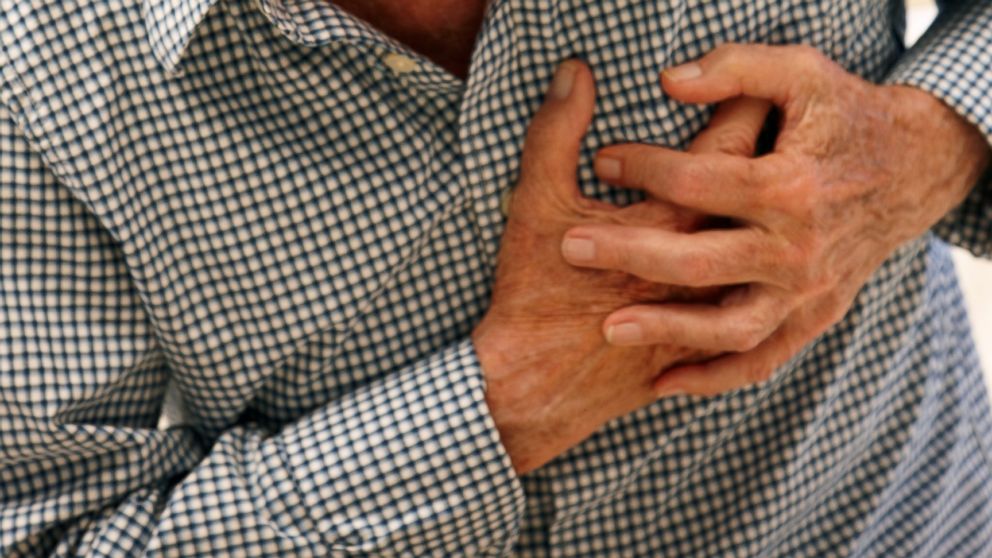Study Finds Broken Heart Syndrome Can Also Strike Happy People
The rare syndrome can appear to be a heart attack.

— -- The rare and dangerous broken heart syndrome, also known as Takotsubo syndrome, has been known to strike people after they receive extremely bad news, causing them to suffer symptoms similar to a heart attack.
But a new study has found that the syndrome doesn't only occur in those who've had a terrible shock. People who received extremely good news or experienced a happy event also developed the syndrome.
The rare condition is characterized by severe chest pains and is believed to be triggered by a surge of hormones that causes the heart to beat irregularly.
The study, published this week in European Heart Journal, looked at 485 patients who were diagnosed with Takotsubo syndrome after a "definite emotional trigger." Researchers found that not all had a traumatic or sad experience before the onset of symptoms. A small number, approximately four percent, developed Takotsubo syndrome after experiencing a happy or joyful event, such as a birthday party, wedding or the birth of a grandchild.
“A TTS [Takotsubo syndrome] patient is no longer the classic 'brokenhearted' patient, and the disease can be preceded by positive emotions too," said Dr. Jelena Ghadri in a statement today. Ghadri is a lead author on the study and a cardiologist who established the first International Takotsubo Registry at the University Hospital Zurich in Switzerland.
"Clinicians should be aware of this and also consider that patients who arrive in the emergency department with signs of heart attacks, such as chest pain and breathlessness, but after a happy event or emotion, could be suffering from TTS just as much as a similar patient presenting after a negative emotional event," Ghadri added.
By looking at the group of patients with the syndrome, researchers also identified a specific demographic affected by the syndrome. Ninety-five percent of those affected were women.
Additionally the hearts of those who had the syndrome after a "happy" event appeared to react differently by ballooning in the mid ventricle as opposed to those who were "brokenhearted," where the heart ballooned out at the bottom.
Dr. Sahil Parikh, an interventional cardiologist at University Hospitals Case Medical Center, said because the syndrome is so rare, this study can be a great help in unraveling why certain people get broken heart syndrome.
"I’m not surprised that there is an emotional trigger whether good or bad," Parikh told ABC News. "I think that resonates with what we’ve known about other kinds of cardiomyopathy [weakened heart muscle] related to hormone surges."
Parikh said while the number of subjects is small, it's crucial for these kinds of studies to continue to find the patterns of this rare syndrome.
"On all counts, it’s difficult to first identify the patients and then do the appropriate tests in a coordinated way," said Parikh. "In some ways this is why this registry is so important. It looks for clues and looks in retrospect at what patterns might be prevailing."




